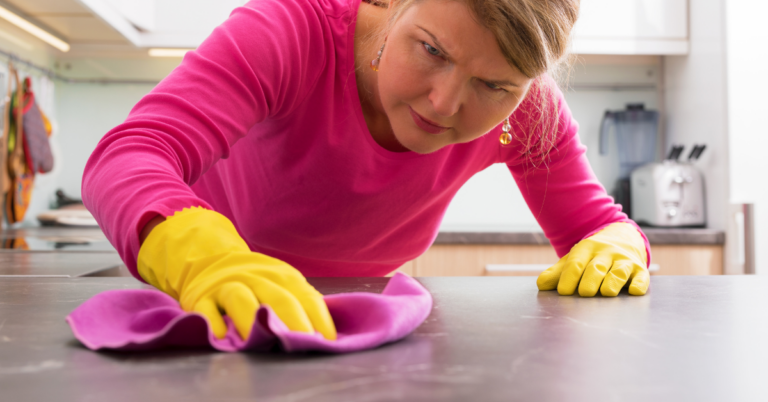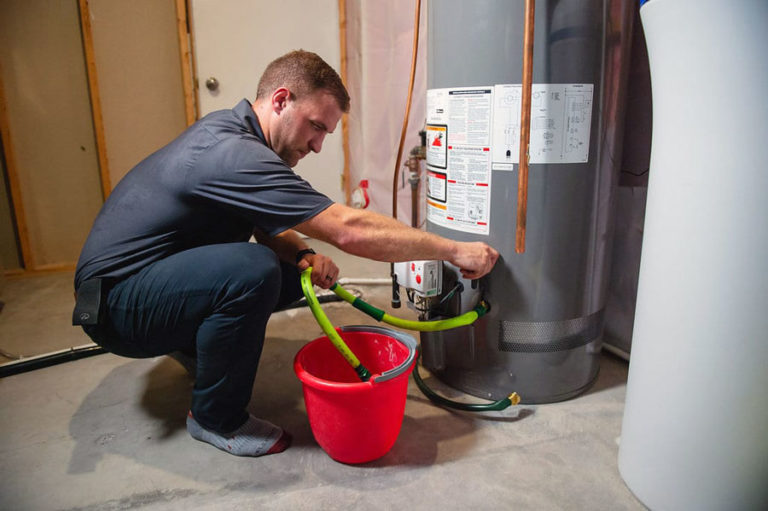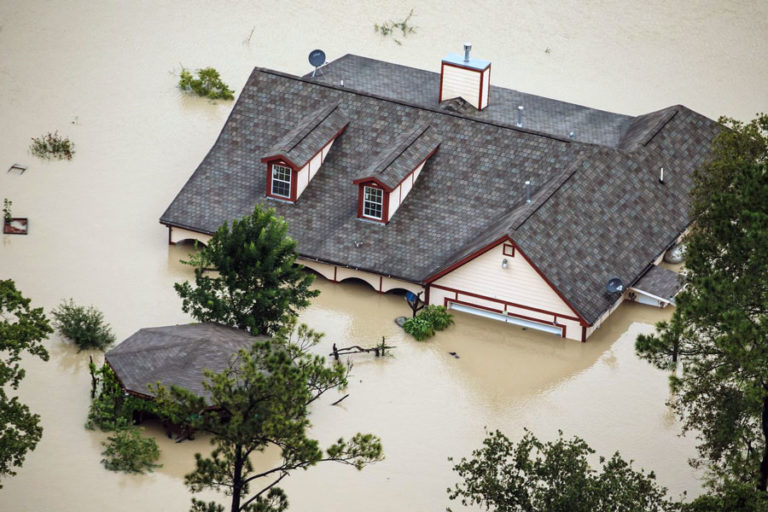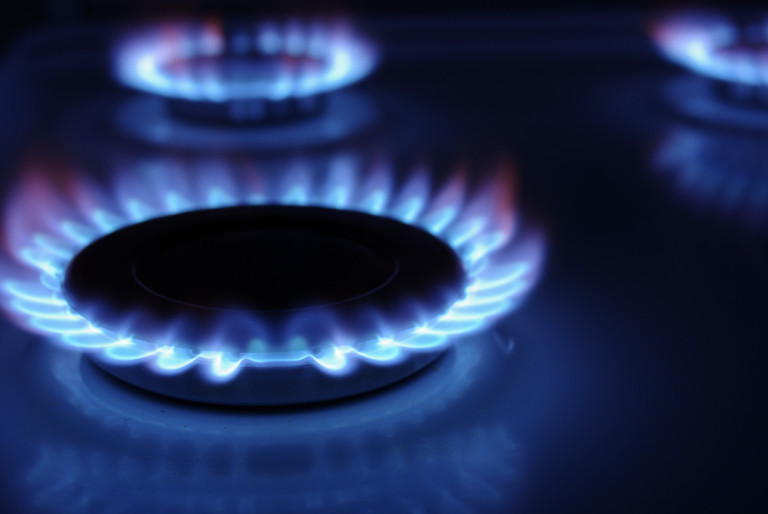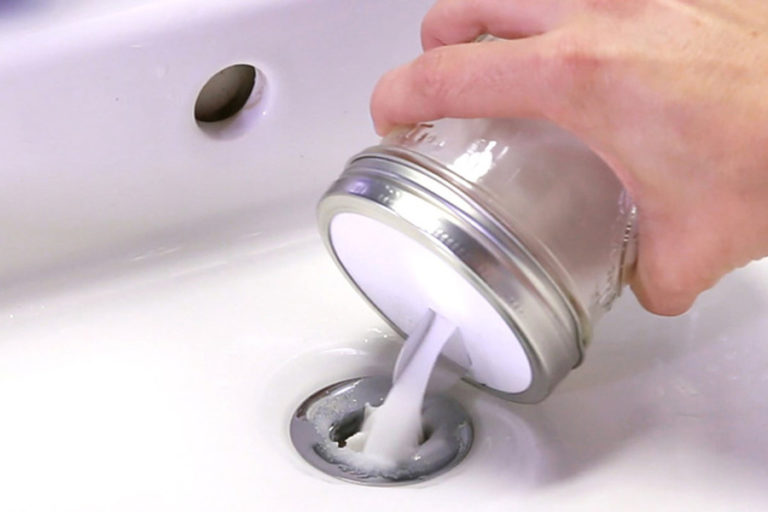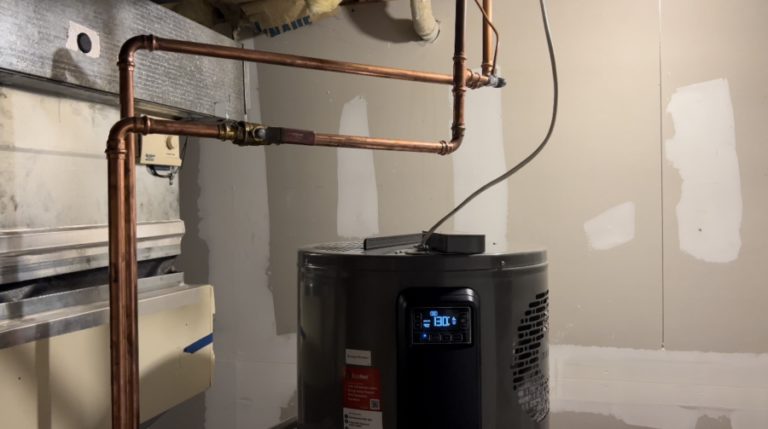Gas Water Heater Safety (Tips & Precautions to Keep You Safe)
Practicing good water heater safety never occurs to most homeowners. But it could save you a trip to the hospital someday. The fact is, a water heater can be highly dangerous.
Here are several safety tips and precautions we’ve learned from installing and repairing thousands of water heaters over the years.
Water Heater Safety: A No-Play Zone
If your water heater (or furnace) is located in an open area — like a wide-open basement or garage — you need to make sure children are kept away. Here’s an easy solution:
Use tape, string, chalk, or paint to establish a boundary around the appliances. A minimum boundary of 18 inches is required, though further is even better. Then teach your children never to cross it without an adult.
Make sure you explain to them the dangers of playing with these appliances in a way that won’t scare them. For example, explain to them how important they are for warm water to take baths and showers.
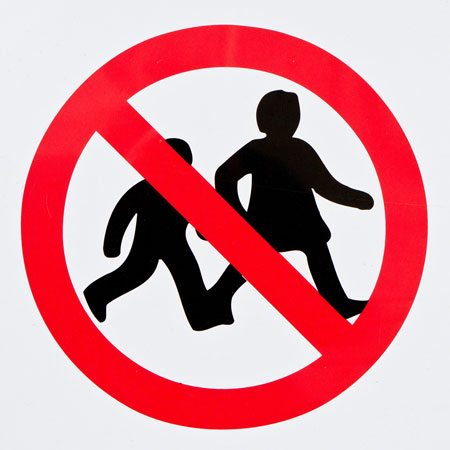
Water Heater Safety: Remove Dangerous Materials
Growing up, I remember that my parents used a space behind the water heater to store or hide all sorts of combustible objects, from our Christmas presents to Halloween decorations to paint cans. Frankly, that was a really bad idea. But I see this in many people’s homes.
By its nature, a gas water heater uses a gas-fired flame to heat the water in its tank. So, it’s important that you not store flammable materials anywhere near a gas water heater. Here’s what you want to do.
Remove any gasoline containers, paint cans, paint thinners, paper products, and other flammable materials from around your gas water heater. Store them in a safe place away from the hot water heater or dispose of them responsibly.
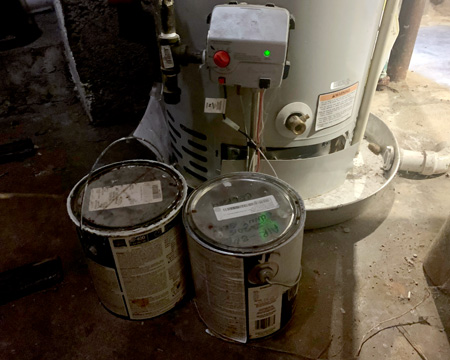
Water Heater Safety: Shut Off the Gas
Every gas water heater has a pipe that brings gas into it. The gas is then lit (at the pilot light), which creates a flame that heats the water.
If you have a gas water heater, you need to learn how to shut off the gas in case of an emergency. One such emergency might be that you smell gas coming from your basement. When this happens, the first thing to do is call your gas utility company. They will diagnose the problem.
Another safety precaution is to find the shutoff valve. It’s located typically on the gas line parallel to the water heater. When the valve handle is in line with the gas line, the pipe is open. To shut it off, turn the handle clockwise until it is perpendicular to the gas line.
PRO TIP: If you suspect a serious gas leak in your home, don’t hesitate. Immediately leave your home and call your gas utility company. This is a dangerous and explosive situation best handled by the experts.
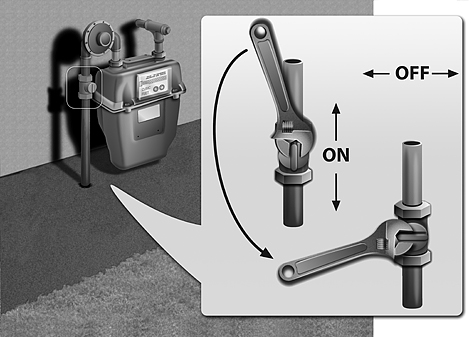
Water Heater Safety: Do This Before You Light it!
Lighting a pilot light is perhaps a homeowner’s biggest fear, whether it’s for the gas stove or gas water heater. Let’s get right into how to handle this safely every time.
- Sniff the area for gas. Natural gas is colorless and odorless. But the gas company adds a strong odor to it so you can detect a gas leak. If you smell gas, close the gas shut-off valve (see above) to the gas hot water heater.
- Do not turn on any lights or use your phone. An electric spark can ignite the gas. Instead, leave your home immediately and contact the gas company from a neighbor’s house (as noted above). If you can’t reach the gas company, call your local fire department.
- If the water heater is standing in water. Don’t touch it. Leave your home immediately and call the gas company.
- If you don’t smell any gas. You can now proceed with lighting the you gas water heater pilot light using these instructions. The instructions at this link will clearly step you through the process of relighting a pilot light for different brands of water heaters.
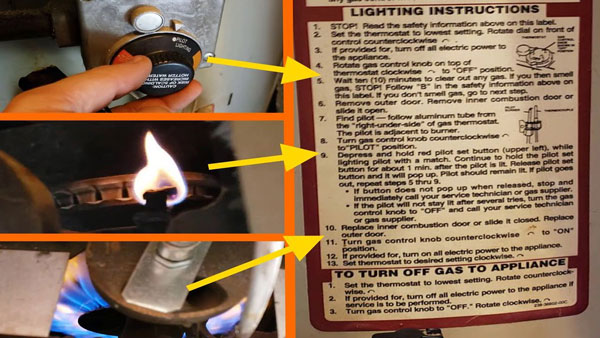
Resources
- How to light your water heater pilot light (all major brands)
- Water heater repairs
- How to restore hot water to your water heater
- How long does a water heater last?
- The parts of a water heater
- How to test your T&P valve (make sure your water heater won’t explode!)
Final Thoughts
A water heater, especially a gas water heater, can be dangerous. From hot water burns to severe explosions, it needs to be continuously inspected and respected. That’s why you want to keep your kids away. The above steps go a long way in keeping your family safe.
Call 1-Tom-Plumber
Don’t hesitate to contact us here or call us at 1-Tom-Plumber (1-866-758-6237) if you need help lighting, repairing, or installing your hot water heater.
1-Tom-Plumber’s certified team of plumbers and drain technicians respond immediately to any emergency plumbing, drain cleaning, or water damage problem. We also handle the excavation of underground water lines and sewer main lines. Our immediate-response team is available every day and night of the year, even on holidays.


